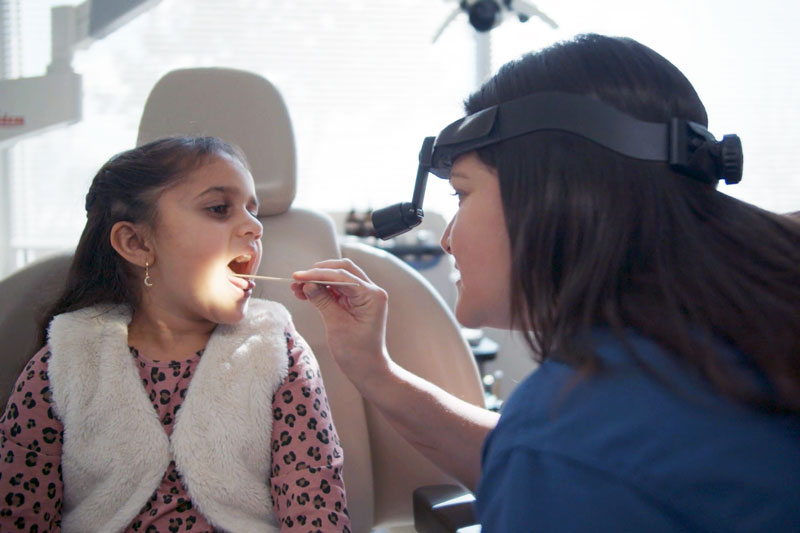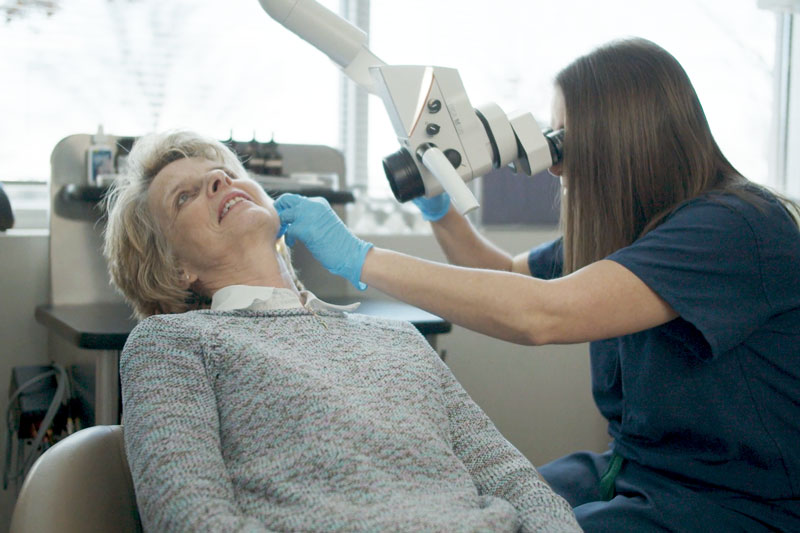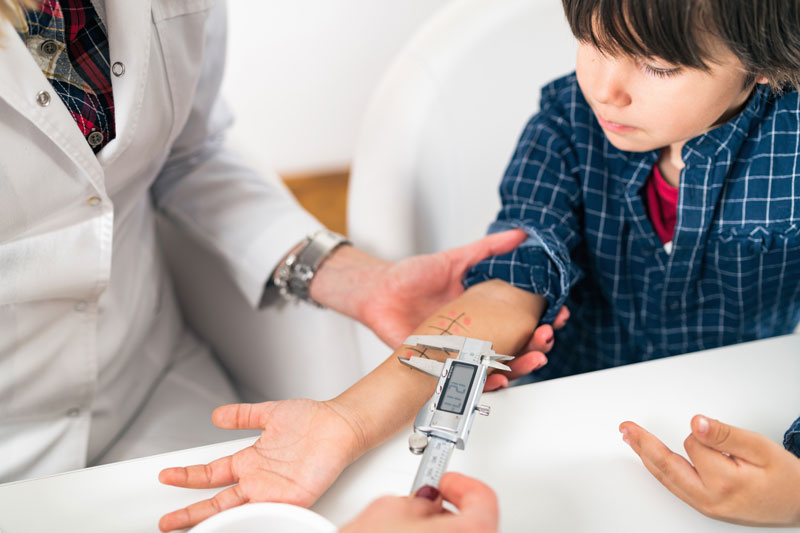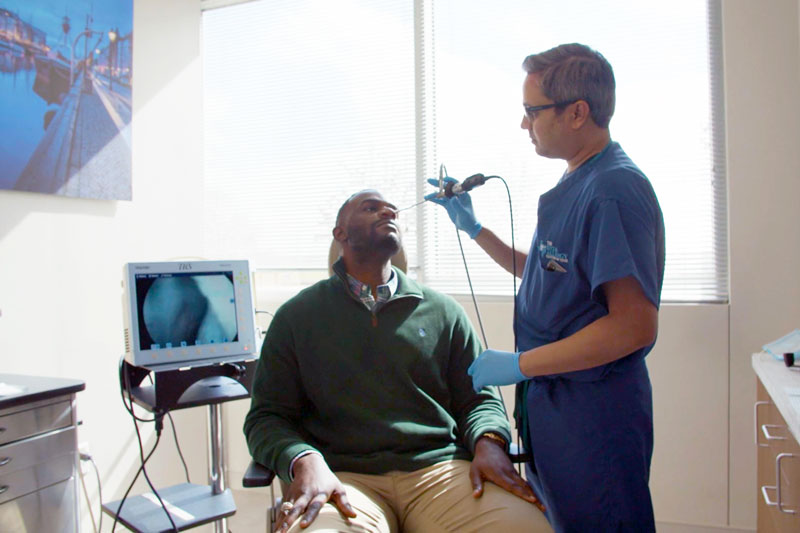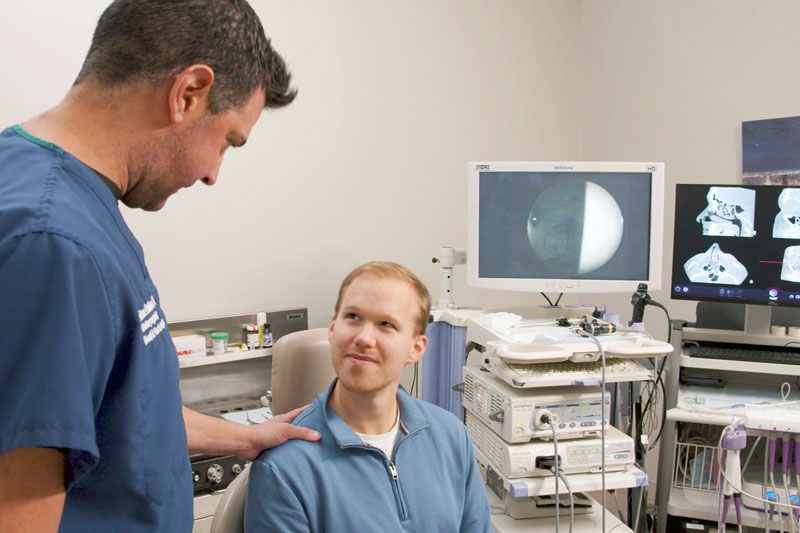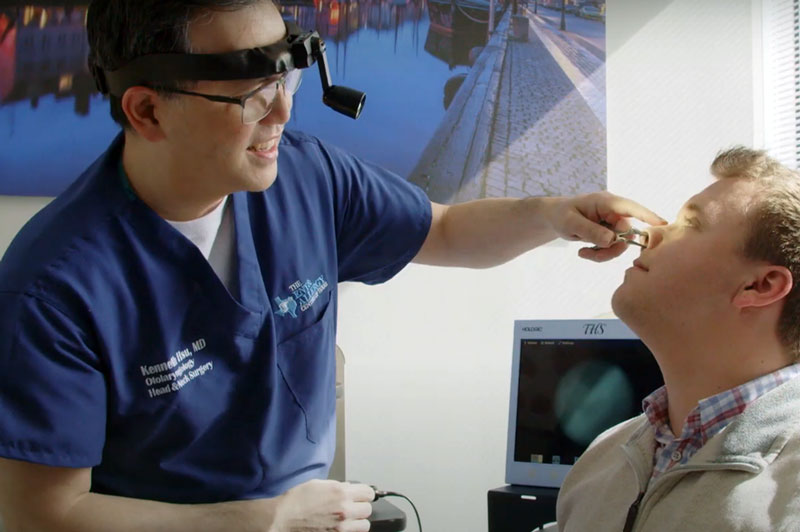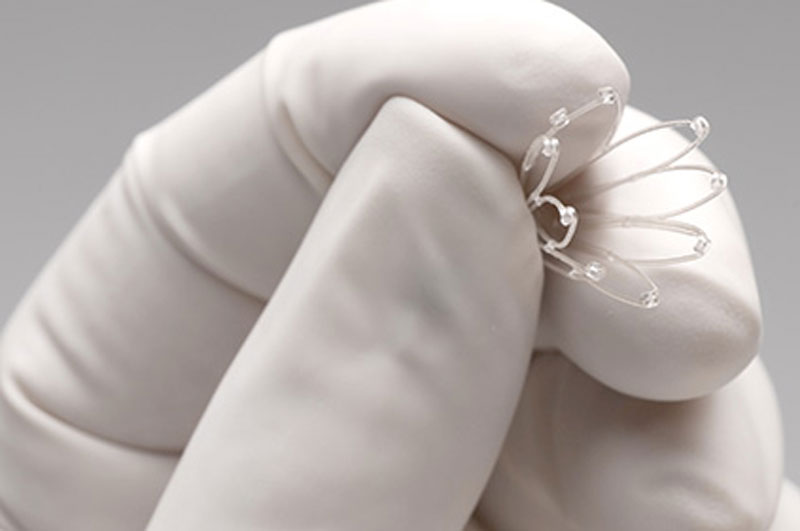What is a Cochlear Implant?
The ENT & Allergy Centers of Texas offers the option of a cochlear implant for eligible patients. Our team of hearing specialists provide diagnostic, surgical and rehabilitation services in all areas of cochlear implantation. Your cochlear implant expert team will include:
- Neurotologic surgeons
- Audiologists
- Speech-language pathologists
- Psychologists
Cochlear implants are devices that are surgically implanted to bypass damaged hair cells in the ear and directly stimulate the auditory nerve with electrical impulses. This technology is particularly beneficial for individuals who suffer from severe or profound hearing loss, and who may not experience improvement with traditional hearing aids.
Unlike hearing aids, cochlear implants go beyond sound amplification. Rather, they generate an electrical signal that the brain interprets as auditory input. This signal is created by a device that sits behind the ear, which consists of a microphone, speech processor, and transmitter. These work together with the internal components of the implant. Cochlear implants have the potential to enhance an individual’s hearing capacity and ability to comprehend speech, particularly for those with significant hearing impairments or complete deafness.

Who is a Candidate for Cochlear Implants?
If you or someone you love has experienced significant hearing loss that is not helped by hearing aids, cochlear implants may be an option. The best candidates for this procedure have a good support system and are motivated to put in the effort to improve their hearing and communication through surgery and hearing rehabilitation . It is important to understand what is possible with cochlear implants. Your doctor will discuss this during the consultation visit. It is also important to expect a multi-phase process after receiving the cochlear implants, including activation, programming, and rehabilitation.
To be a candidate for a cochlear implant, it is necessary to be in good general health. This is because surgery is involved, and you must be healthy enough to undergo general anesthesia. Both auditory nerves must also be present. Cochlear implants are designed to address sensorineural hearing loss. This means that, to be a candidate, your hearing loss has occurred in the cochlea or inner ear.

Are There Any Risks From Cochlear Implants?
What Are Hybrid Cochlear Implants?
Traditional hearing aids don’t always work for people with severe high frequency hearing loss. The answer is a hybrid cochlear implant. This type of implant uses the acoustic amplification of the hearing aid to improve low frequency hearing, and uses the electrical stimulation of the cochlear implant for higher frequency hearing. The hybrid cochlear implant is different from the cochlear implant in its design. The electrode array is much shorter in this implant so it doesn’t go as far into the inner ear.
For people with relatively good hearing (mild hearing loss) in the lower frequencies with more significant (severe) hearing loss in the higher frequencies may be a candidate for a hybrid cochlear implant. This unique combination of two proven technologies — acoustic amplification and cochlear implant technology—in one device.







